Irritable Bowel Syndrome (IBS) is the most commonly diagnosed disorder of the GI tract affecting as much as 20% of adults. IBS is exhibited by various symptoms such as gas, abdominal pain, and altered bowel function which can severely impair the quality of life.
Stress can worsen the symptoms while consuming certain foods can trigger them. Problems with bowel function are manifested either by diarrhea or constipation. In this case, we will be discussing the best probiotics for IBS Constipation.
How Do You Know If You Have IBS?

IBS is characterized by regularly occurring abdominal pain for at least one day per week for three months, as well as any two of the following symptoms:
- pain when having bowel movement,
- change in frequency of bowel movement
- change in stool appearance
The exact cause of IBS remains uncertain. However, the condition has been associated with changes in digestive motility, bacterial imbalance, infection, brain-gut interactions, food allergies, intestinal inflammation, and carbohydrate malabsorption.
The 4 Sub-types of IBS
Moreover, there are four sub-types of IBS involving bowel movement dysfunctions that are most often experienced and they are:
- Diarrhea-predominant (IBS D)
- Constipation-predominant (IBS-C)
- Alternating diarrhea and constipation (IBS-M)
- Unspecified, which does not fit into any of the above categories (IBS-U)
In addition, another subtype called ‘post-infectious IBS’ has been identified in people who have developed the disease right after an infection.
Treatment for all subtypes includes medication, lifestyle and diet changes, elimination of lactose and FODMAP foods, exercise, no smoking or drinking, and the use of probiotics. In this article, we will be focusing more on IBS-C or the Constipation-predominant subtype and the best probiotics for its management.
What Are Probiotics?
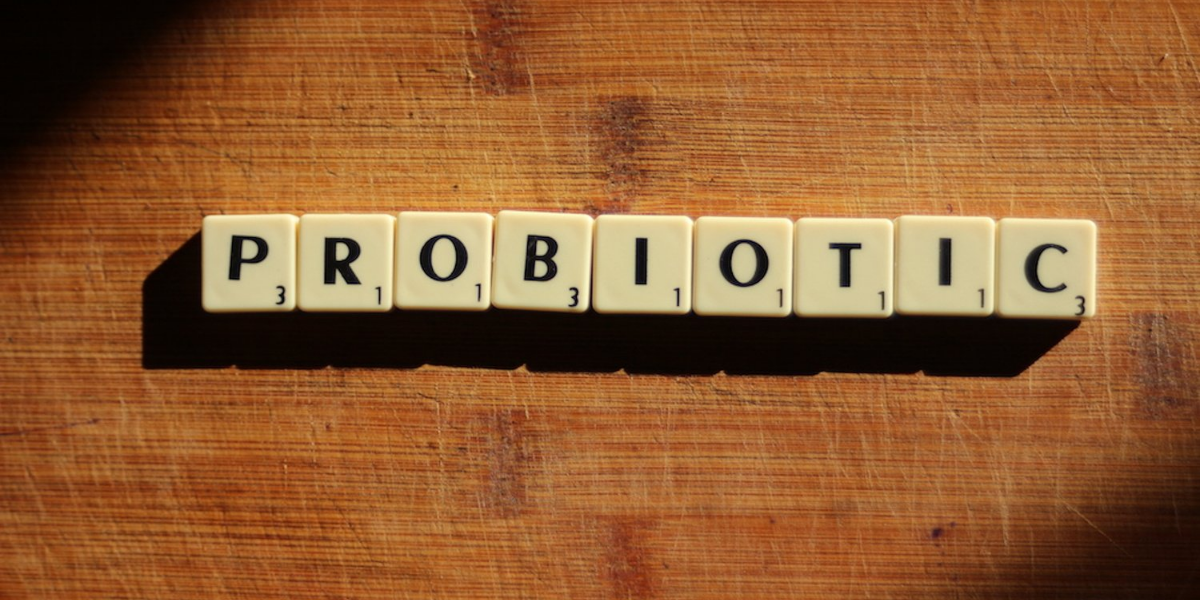
Probiotics are live microorganisms that promote digestive health by improving the conditions of the gut microflora. The most common place to find these beneficial bacteria is in the gut, particularly in the large intestines, but there are also other areas of the body where they reside and these include the mouth, urinary tract, vagina, skin, and lungs.
There are several characteristics that a microorganism should possess to be considered a probiotic, and they are the following:
- Is safe for consumption
- Can be isolated from a human
- Can survive in the intestines after being ingested
- Has proven health benefits
Probiotics can keep you in good health because they can help replace the good bacteria that you have lost. They can also help maintain a healthy balance of good and bad bacteria so that your body remains working the way it should.
Signs That You Need Probiotics
Sufficient good bacteria in the gut enables you to control the bad bacteria, improve digestion, and strengthen your immune system. A well-balanced gut microflora is essential to digestive health and taking probiotics helps to keep it this way.
Unfortunately, this is not always the case. When the beneficial bacteria is lacking in your digestive system, this could lead to certain health problems
The tell-tale signs for bacterial imbalance include:
- A recent episode of food poisoning
- Antibiotics use
- Mood disorders
- Allergies and asthma
- Skin conditions like acne and psoriasis
- Frequent sickness
When you have experienced one or more of these conditions, then perhaps it’s time to up the ante and enjoy better health by taking probiotics.
Best Probiotics For IBS Constipation
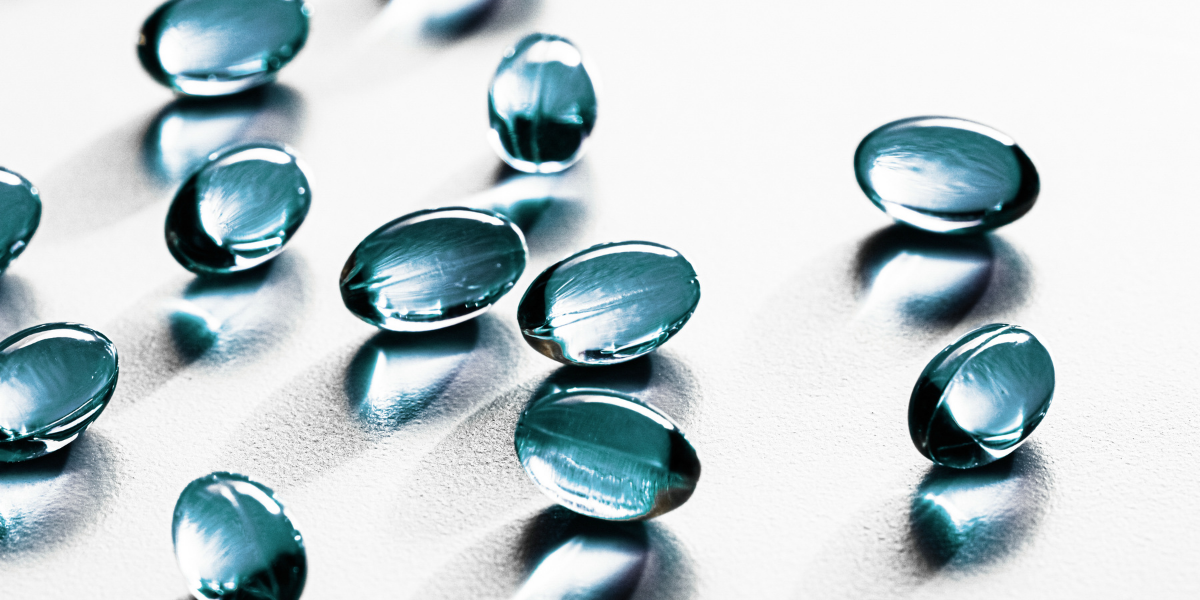
Probiotics can be consumed in the form of dietary supplements which may include a single probiotic strain or multiple probiotic strains.
Increasing your intake of probiotics can help with certain conditions such as urinary tract infections, yeast infections, lactose intolerance, gum disease, sepsis, eczema, upper respiratory infections, inflammatory bowel disease (IBD), and irritable bowel syndrome (IBS).
As mentioned earlier, IBS-C is one of the sub-types for IBS. People suffering from IBS-C mainly experience recurring constipation which is often accompanied by:
- Gas or bloating
- Straining
- Abdominal pain and discomfort
- Irregular bowel movements
- Hard, painful, or uncomfortable bowel movements
- Feeling of incomplete bowel movement
- Hemorrhoids
IBS-C is different from chronic functional constipation because people with IBS-C often undergo cramping and abdominal pain. On the other hand, those who have chronic constipation usually do not experience pain.
Generally, most of these symptoms are reduced or abolished with regular consumption of probiotics. For best results, it is recommended that probiotic products must have at least 1 billion colony-forming units (CFUs).
For now, let us discuss the best probiotics for IBS constipation, and here they are in no particular order:
-
Align Probiotic 24/7 Digestive Support
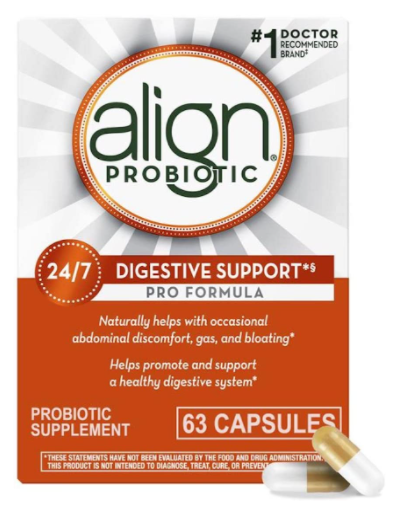
Backed with over 20 years of research, this popular probiotic supplement is a favorite of gastroenterologists which they recommend twice as much as any other brand. It also has high consumer ratings for effectiveness.
Align contains prebiotics and the probiotic strain Bifidobacterium infantis 35624 which supplements your digestive system with beneficial bacteria and helps minimize symptoms of cramping, bloating, and abdominal discomfort. It is soy-free, gluten-free, and vegetarian.
Two studies involving 437 subjects were done to check for the effectiveness of Bifidobacterium infantis 35624 found in Align®. Both studies showed improvement in pain and other IBS symptoms. Results in one of the two studies indicated a marked improvement in the frequency of bowel movement but no significant improvement in the overall quality of life.
Align Probiotic has quality ingredients, is DNA-tested, and heat-foil seal wrapped to ensure it has bacterial strains at an effective level of CFUs and live cultures. One capsule a day is all it takes to maintain your gut’s natural balance of microflora.
-
Stonehenge Health Dynamic Biotics
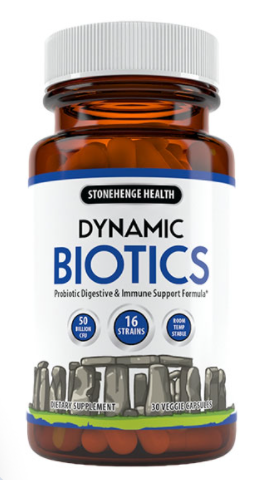
Most probiotic supplements contain just 1 or 2 bacterial strains and a limited number of CFUs per serving.
The Stonehenge Health product includes 16 probiotic strains, substrains, prebiotics, and 51 billion CFUs per capsule. This diverse range of beneficial bacteria promotes the ideal bacterial balance in your GI tract.
It is a vegan supplement and does not contain soy, gluten, genetically modified organisms (GMOs), preservatives, or artificial ingredients.
The Bifidobacterium strain found in Stonehenge Health Dynamic Biotics can also help minimize the symptoms of IBS.
Moreover, the delayed-release capsules can withstand stomach acid. Take one capsule a day before meals for best results.
-
60 Billion Probiotic by Physician’s Choice
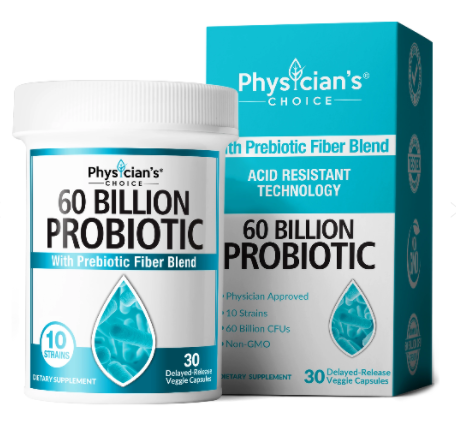
This supplement has 10 probiotic strains and is so named for the 60 billion CFUs it contains. It is vegan, non-GM, and certified organic. It is also free of gluten, soy, egg, milk, wheat, peanuts, preservatives, and unnecessary binders.
To be effective, probiotics should be able to pass through the stomach since their beneficial properties depend on their ability to survive in an acidic environment. The 60 Billion Probiotic delayed-release capsules are resistant to acid which enables the probiotic organisms to become more viable in their transit through the gastrointestinal tract.
This Physician’s Choice product offers immune function and digestive health support. It also promotes regular bowel movement, reduces bloating and gas, and boosts nutrient absorption. Evidence also suggests that these beneficial microbes improve symptoms associated with severe intestinal conditions.
-
Culturelle Digestive Daily
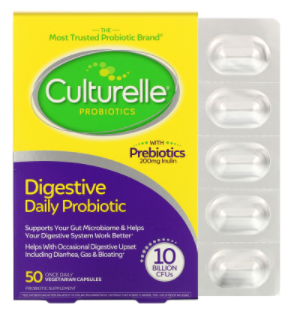
One capsule of Culturelle Digestive Daily contains 10 billion live cultures of the probiotic strain Lactobacillus rhamnosus GG, with an additional 200 mg of the prebiotic Inulin.
This product supports the gut microflora as well as the optimal function of the digestive system. The CFUs on the box have guaranteed viability up to the expiration date indicated. Unfortunately, it cannot be mixed with hot food or drinks.
Culturelle Digestive Daily Probiotic also helps with occasional digestive issues such as gas, diarrhea, and bloating along with travel-related digestive disturbances. In addition, it doesn’t need to be refrigerated and is free of gluten, soy, and dairy.
-
1MD Complete Probiotics Platinum®
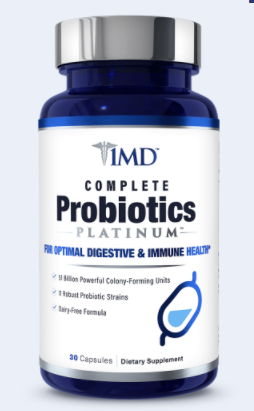
In this product, you can find 11 potent probiotic strains, substrains, prebiotics, and 51 billion powerful CFUs.
It helps support nutrient digestion and absorption and alleviates sporadic gas, bloating, and indigestion. It also promotes the body’s natural microflora which benefits the immune system.
All ingredients are natural and vegan and free from dairy, gluten, soy, GMOs, and preservatives.
In addition, each capsule of 1MD Complete Probiotics Platinum® is resistant to stomach acid which ensures that it reaches the intestinal tract safely where the microflora resides.
-
Formulated Probiotics Once Daily by Garden Of Life
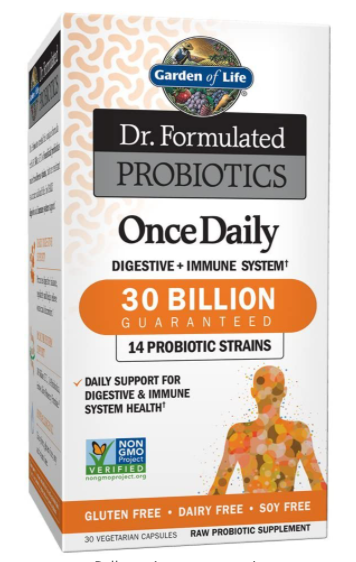
Specially made for men and women, Dr. Formulated Probiotics Once Daily provides 30 billion CFUs from 14 raw probiotic strains such as Lactobacillus acidophilus, Lactobacillus casei, and Bifidobacterium lactis.
Both a probiotic and prebiotic supplement, Dr. Formulated Probiotics Once Daily also contains organic acacia and organic potato fiber to help feed the beneficial bacteria in the gut.
This product offers daily support for digestive and immune system health, promotes digestive balance and regularity, and helps relieve occasional discomfort.
It is third-party certified non-GMO and gluten-free and also free from soy and dairy. Moreover, this supplement is not suitable for travel as it must be kept refrigerated.
Since probiotics are taken by mouth, their efficacy is based on how well they can withstand the acidic environment of the GI tract. The highest quality probiotics are able to remain intact as it passes through the stomach and move on to the intestines where most of the nutrients are absorbed.
Probiotic Strains For IBS Constipation
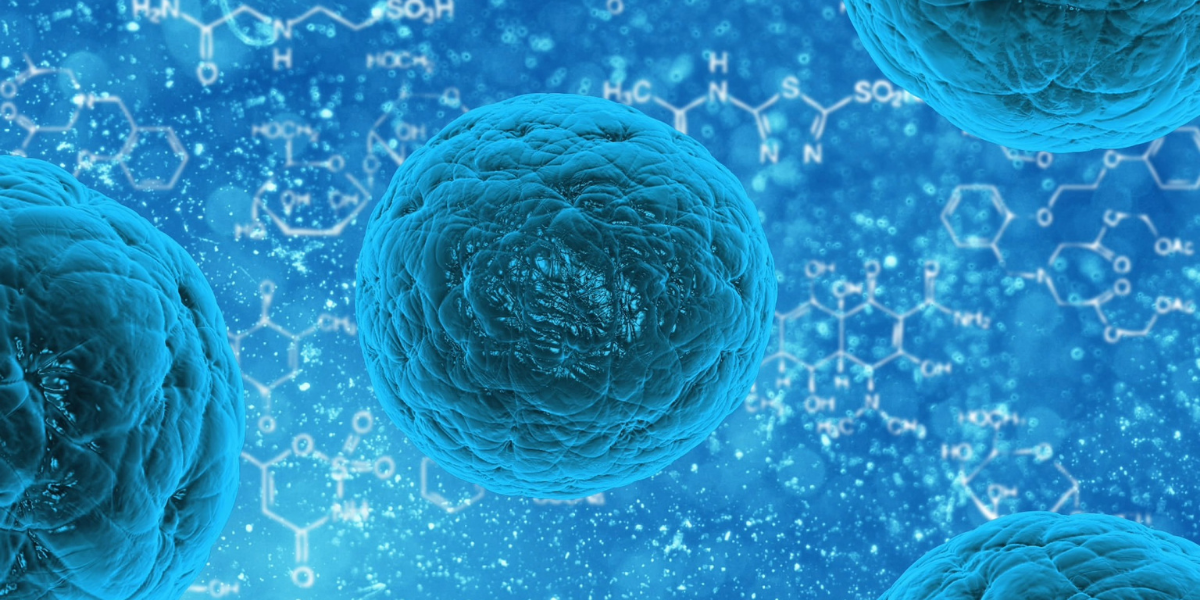
Among all the probiotic species, Bifidobacterium and Lactobacillus are the most studied and most often added to probiotic supplements to help with digestive issues. These species are also the most dominant strains in the human gastrointestinal tract.
According to the London Gastroenterology Centre, probiotics containing Bifidobacterium infantis and other strains of bifida bacteria appear to be the most effective for IBS. Bifidobacterium infantis was found to relieve symptoms of IBS, particularly gas, bloating, and abdominal pain.
Other probiotic strains like Lactobacillus acidophilus and Lactobacillus rhamnosus GG have also been proven to help in the management of IBS symptoms, albeit to a lesser degree.
Aside from probiotic bacteria, there are also probiotic yeasts contained in supplements such as Saccharomyces boulardii and Saccharomyces cerevisiae that are good for IBS.
How Can Probiotics Help Treat IBS Constipation?
Constipation is a common digestive problem that regularly affects an estimated 16% of adults worldwide. This condition may be brought on by IBS and can be hard to treat so many people resort to natural treatments and over-the-counter supplements like probiotics.
Research has shown that probiotics can be effective in lessening the severity of symptoms and improving the quality of life of people suffering from IBS. Certain conditions and alterations in the gut flora can cause IBS symptoms to surface.
According to a 2014 study published online, high amounts of the harmful E. coli, Streptococcus, and Clostridium, and lower levels of the beneficial Lactobacillus and Bifidobacterium have been associated with IBS. In fact, many of the symptoms of up to 84% of IBS patients are due to bacterial overgrowth in the small intestines.
Unfortunately, some medications intended to treat symptoms of IBS can end up harming the normal balance of gut microflora. Any changes in the gut microflora may increase susceptibility to intestinal gas, increase gut inflammation, alter digestive motility, and reduce immune function which can trigger IBS symptoms. It becomes a never-ending cycle.
In general, probiotics can help improve symptoms. A review by the British Dietetic Association (BDA) involved 29 studies that assessed overall symptom improvements. From this number, 14 revealed a positive response for 10 different probiotics.
Similarly, a German study involving a two-strain probiotic called ProSymbioflor showed promising results. Researchers treated 297 patients with it for 8 weeks and they reported a 50% decrease in general symptoms, particularly about abdominal pain.
Which Probiotic Should You Choose For IBS-C?
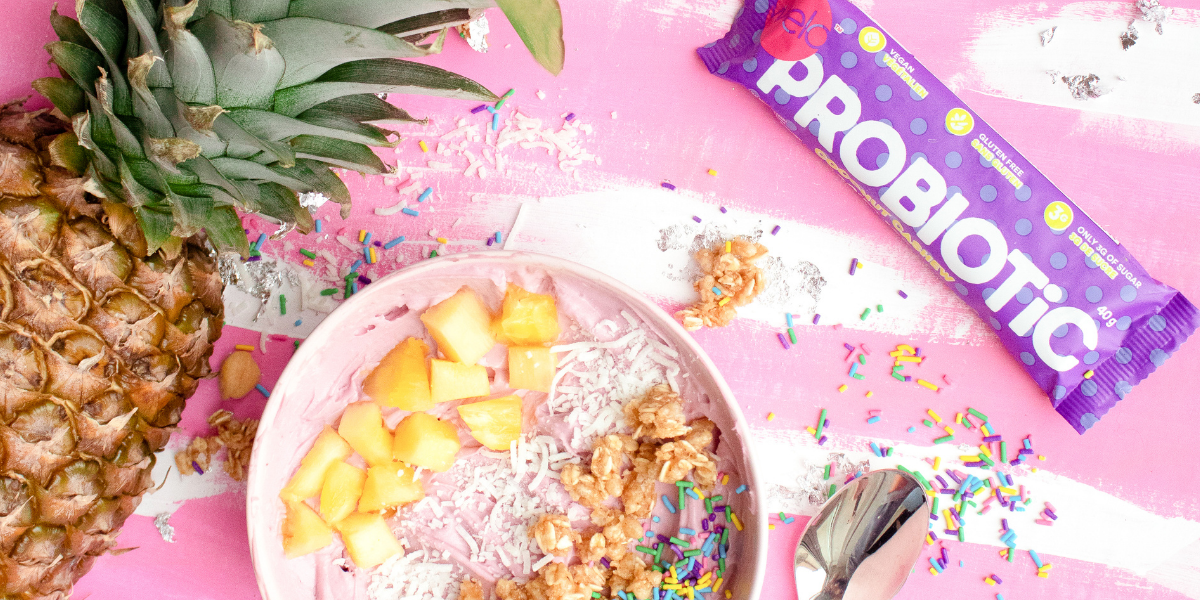
Although adding probiotics into your diet has shown promising results, there are many different kinds to consider. Just as your own body has its own specific needs, so does each type of probiotic have its unique benefits.
It is important to identify the correct strain for your needs. To help you decide which probiotic to use, look up the digestive issue that you want to treat and make your choice according to whichever can help with that condition.
Probiotics In Foods
If you are hesitant about taking dietary supplements and drinks to get your daily dose of probiotics, there are other ways to achieve this. Probiotics can also be found in fermented foods such as:
However, you must take note that not all fermented foods contain probiotics. Furthermore, the probiotics in supplements are generally more concentrated. One way to tell if a product has probiotics is to check the ingredients for the words ‘contains live and active cultures.’
Sum And Substance
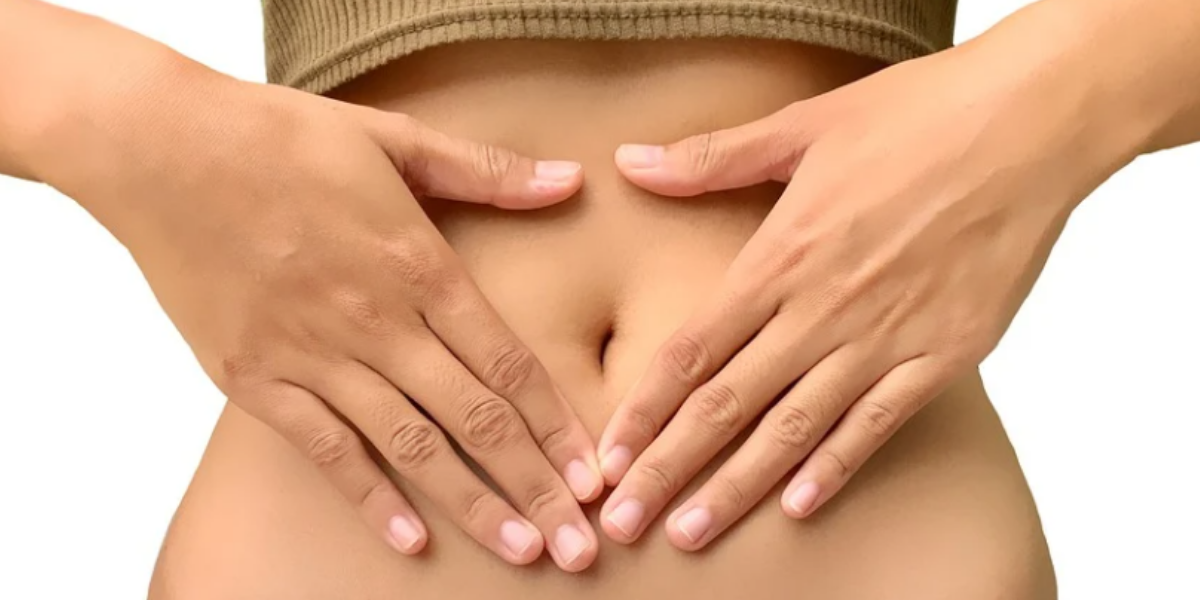
When incorporating probiotics into your diet, also include foods that are high in fiber and rich in nutrients such as fruits, vegetables, and whole grains. Fiber is necessary for probiotics to be able to grow and maintain a healthy balanced gut.
Probiotics continue to be one of the most popular dietary supplements and sales are projected to exceed 64 billion dollars by 2023. At present, research is ongoing and results are inclined towards the effectiveness of probiotics in managing various digestive conditions and promoting gut health. In this article, you now have an idea of the best probiotics for IBS constipation.

